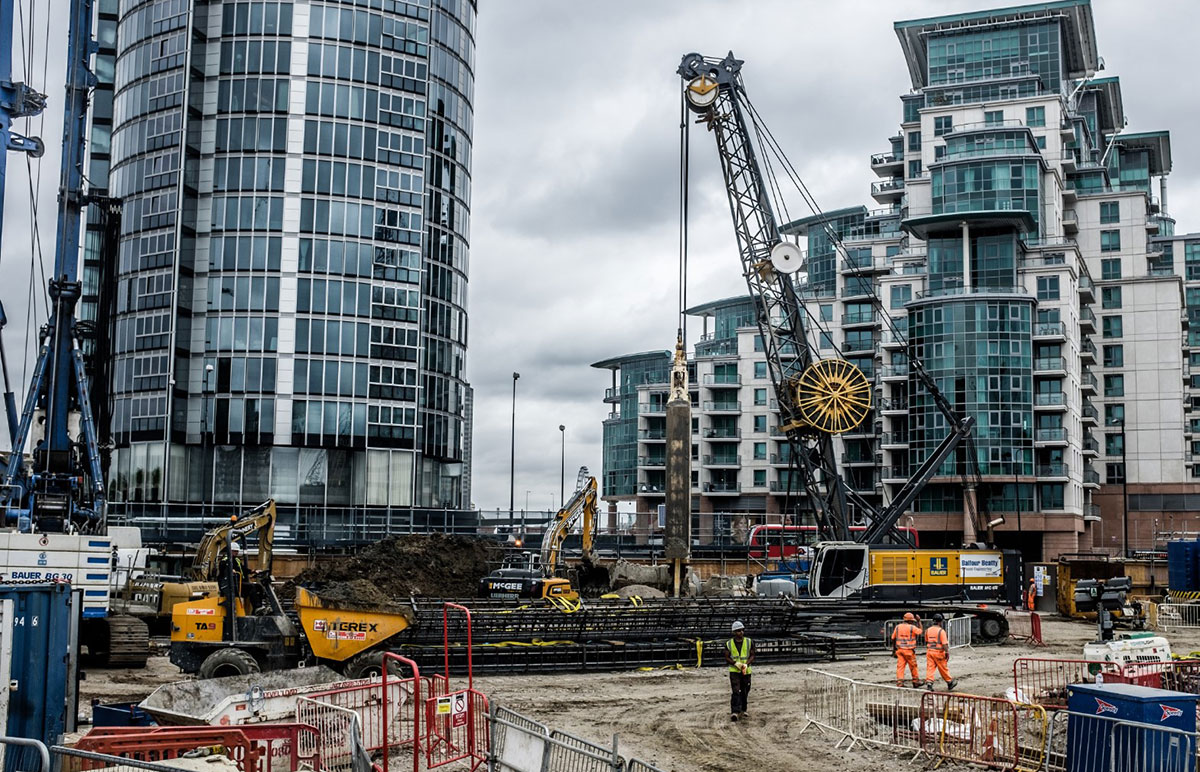Everything about Geotheta
Table of ContentsThe smart Trick of Geotheta That Nobody is Talking AboutWhat Does Geotheta Mean?Little Known Questions About Geotheta.Some Ideas on Geotheta You Need To KnowGeotheta Things To Know Before You Buy

They conduct website investigations, gather samples, do research laboratory tests, and examine information to assess the viability of the ground for building and construction projects - Geotechnical Engineers. Based on their findings, geotechnical engineers supply recommendations for foundation layout, incline stability, preserving structures, and mitigation of geotechnical hazards. They team up with various other professionals, such as designers, structural designers, and construction teams, to make certain that geotechnical factors to consider are integrated right into the total task style and application
By evaluating the habits and buildings of soil and rock, they can determine prospective geotechnical threats such as landslides, soil settlement, or slope instability. Their knowledge aids protect against failures or accidents that can threaten lives and residential or commercial property. Right here are some in-depth tasks and obligations of a geotechnical designer: Site Investigation: Geotechnical engineers conduct site examinations to gather information on subsurface conditions.
They translate the information to recognize the properties and behavior of the soil and rock, including their toughness, permeability, compaction attributes, and groundwater conditions. Geotechnical Evaluation and Design: Geotechnical engineers analyze the information gathered during site examinations to analyze the stability and viability of the website for building jobs. They carry out geotechnical calculations and modeling to evaluate aspects such as bearing capacity, negotiation, slope security, side earth pressures, and groundwater circulation.
Get This Report on Geotheta
Foundation Design: Geotechnical engineers play a critical function in designing foundations that can securely sustain the designated framework. They evaluate the dirt conditions and tons demands to establish the suitable structure type, such as superficial structures (e.g., grounds), deep foundations (e.g (https://justpaste.it/ec966)., heaps), or specialized strategies like dirt enhancement. They think about elements such as negotiation limitations, birthing capability, and soil-structure interaction to establish optimal structure styles
They assess building plans, display website activities, and perform area evaluations to validate that the layout suggestions are complied with. If unforeseen geotechnical problems occur, they assess the circumstance and offer referrals for remediation or modifications to the layout. Threat Assessment and Reduction: Geotechnical designers evaluate geotechnical hazards and dangers connected with the project website, such as landslides, liquefaction, or dirt erosion.

Collaboration and Interaction: Geotechnical engineers function closely with various other experts associated with a task, such as architects, architectural designers, and construction groups. Effective interaction and cooperation are important to incorporate geotechnical considerations into the total project additional info style and building and construction process. Geotechnical designers give technical proficiency, answer questions, and ensure that geotechnical demands are fulfilled.
Geotheta for Dummies
Below are some kinds of geotechnical designers: Structure Designer: Foundation designers concentrate on making and analyzing structures for frameworks. They analyze the dirt problems, lots needs, and website characteristics to identify one of the most appropriate foundation type and design, such as shallow structures, deep foundations, or specialized methods like stack structures.
They assess the elements influencing incline stability, such as soil homes, groundwater conditions, and incline geometry, and create techniques to avoid slope failures and mitigate risks. Earthquake Engineer: Quake designers focus on evaluating and developing frameworks to hold up against seismic pressures. They evaluate the seismic hazard of a website, examine soil liquefaction potential, and develop seismic layout requirements to guarantee the safety and security and durability of structures throughout earthquakes.
They execute area testing, accumulate examples, and examine the gathered information to identify the soil residential or commercial properties, geologic developments, and groundwater conditions at a website. Geotechnical Instrumentation Engineer: Geotechnical instrumentation designers focus on monitoring and gauging the habits of soil, rock, and frameworks. They install and keep instrumentation systems that keep track of variables such as soil negotiation, groundwater levels, slope activities, and structural variations to evaluate efficiency and give early warnings of possible issues.
Geotheta - The Facts
They conduct tests such as triaxial examinations, consolidation tests, direct shear examinations, and leaks in the structure tests to collect data for geotechnical analysis and style. Geosynthetics Engineer: Geosynthetics engineers concentrate on the style and application of geosynthetic products, such as geotextiles, geogrids, and geomembranes. They make use of these products to boost dirt security, enhance slopes, offer drain options, and control disintegration.
They have a tendency to be investigatory individuals, which suggests they're intellectual, introspective, and investigative. They wonder, systematic, logical, analytical, and rational. Some of them are additionally social, meaning they're kind, charitable, cooperative, client, caring, practical, empathetic, skillful, and pleasant. Does this audio like you? Take our cost-free job examination to discover if geotechnical designer is among your top profession suits.
In the office setting, geotechnical designers use specialized software devices to carry out calculations, develop designs, and assess data. They prepare records, evaluation job specs, communicate with customers and staff member, and coordinate job activities. The workplace setting offers a helpful atmosphere for study, analysis, and cooperation with other professionals associated with the task.
Not known Facts About Geotheta
They regularly see job websites to perform website investigations, analyze geotechnical conditions, and gather information for analysis. These visits include traveling to various areas, in some cases in remote or difficult surfaces. Geotechnical designers might perform soil sampling, conduct tests, and screen building and construction tasks to ensure that the geotechnical elements of the job are being carried out correctly.
Geotechnical designers also work in specialized geotechnical laboratories. Geotechnical lab designers function thoroughly in these settings, handling screening tools, running instruments, and tape-recording data.